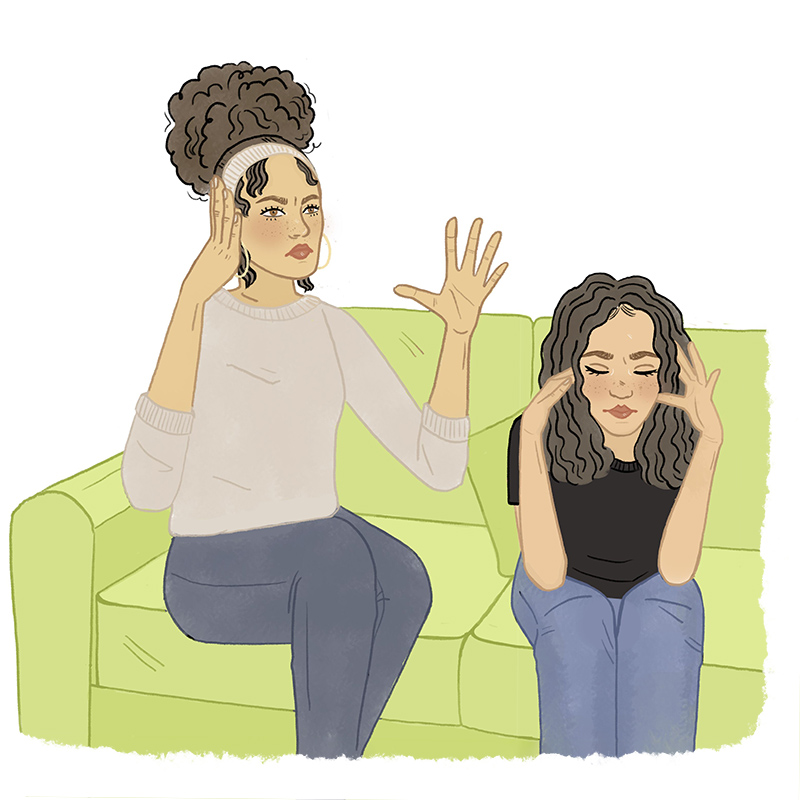





Chapter 7. Mom Copy

Tasha’s mother has been sitting silently off to the side, clutching a tissue.
“Is there anything you’d like to say or ask, Ms. Smith?”
She breaks her trance, and lets out a long sigh. “Tasha is just so lazy, I don’t know what to tell you!”
Tasha rolls her eyes.
“She’s always on her phone, and I keep having to push her to do schoolwork, her chores…. I mean, she’s going to lose her job if she keeps arguing with people at work! And what, then?” Her voice is more animated, louder. “My income hardly keeps us fed, you know.”
“Mom…”
“Your therapist needs to know these things, Tasha,” she cries.
“Don’t you think?” She turns back to you. “She won’t listen to me, she’s disrespectful, she talks back –”
“Mom, please!” Tasha’s voice is also louder now, matching her mother’s.
“We used to be so close,” Tasha’s mom says more softly. “She’s always hiding stuff now. I can’t trust her if I don’t know what she is doing.” Tasha’s mom inhales raggedly. “What should I do with her?”
You sigh and lean slightly forward. “Well, the good news is that you brought her here to treatment. We have to keep in mind that Tasha’s gone through a lot of stress, so some of her behaviors might be trauma reactions.”
“Trauma reactions?” Tasha’s mom scoffs in disbelief. “I don’t think my girl’s had any trauma… Has she?”
“This is all something we’ll work through in time,” you reply. “During the treatment, we’re going to teach her skills that will help her cope with these reactions, and as she feels better, you’ll probably start to notice changes in her behavior.” You glance reassuringly at Tasha, who is looking right at you. “But it’s going to take time. The best thing that we can do for her is to let her know we’re here for her, and not push her too much.”
Tasha’s mother’s eyes narrow a bit. “But she drives me crazy! And her panic attacks scare the living daylights out of me…. I don’t know, I worry for her so much.”
Tasha is very still.
“As much as you can for now, it’ll be best to…” you search for the right words. “It’ll be best to, kind of, ignore her behavior.”
Tasha’s mom frowns at you and crosses her arms.
“I know that can be really frustrating and hard, so one important thing is for you to monitor how you yourself are reacting and how you yourself are affected. If you need to, step away to another room. Use your own coping tools in the same way we’ll be teaching Tasha.”
Both mother and daughter steal a glance at each other.
“We’ll work with you on ways you can support her at home, and if you need help for managing your own stress, I’ll be happy to share some resources with you.”
You beam at Tasha’s mom, who helplessly smiles back. Tasha, noticing both, cannot help but join in.
